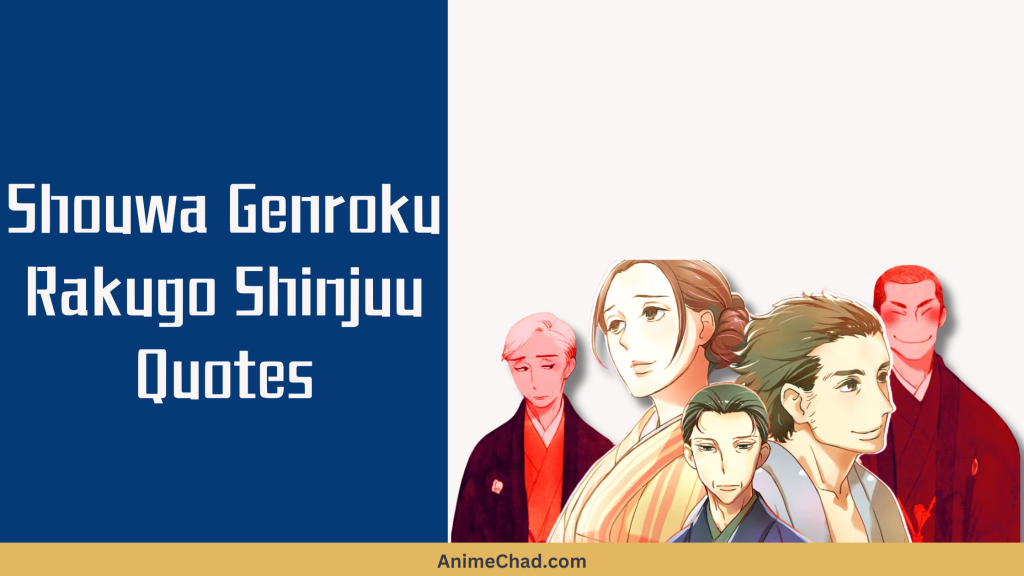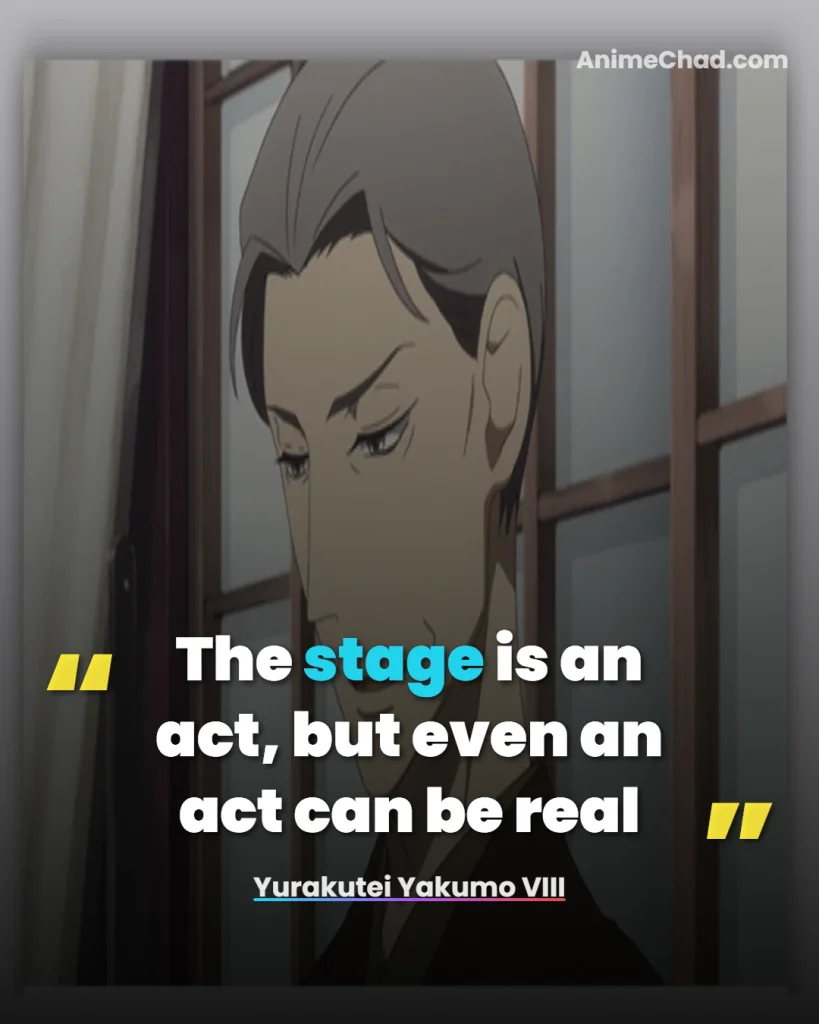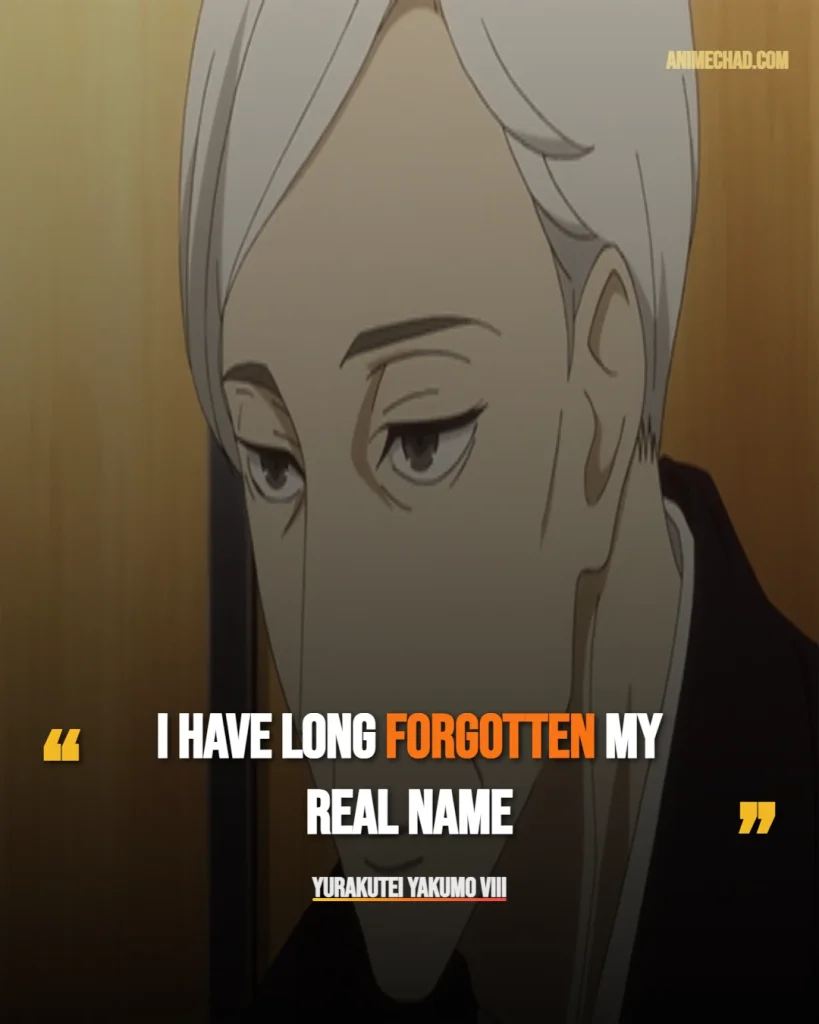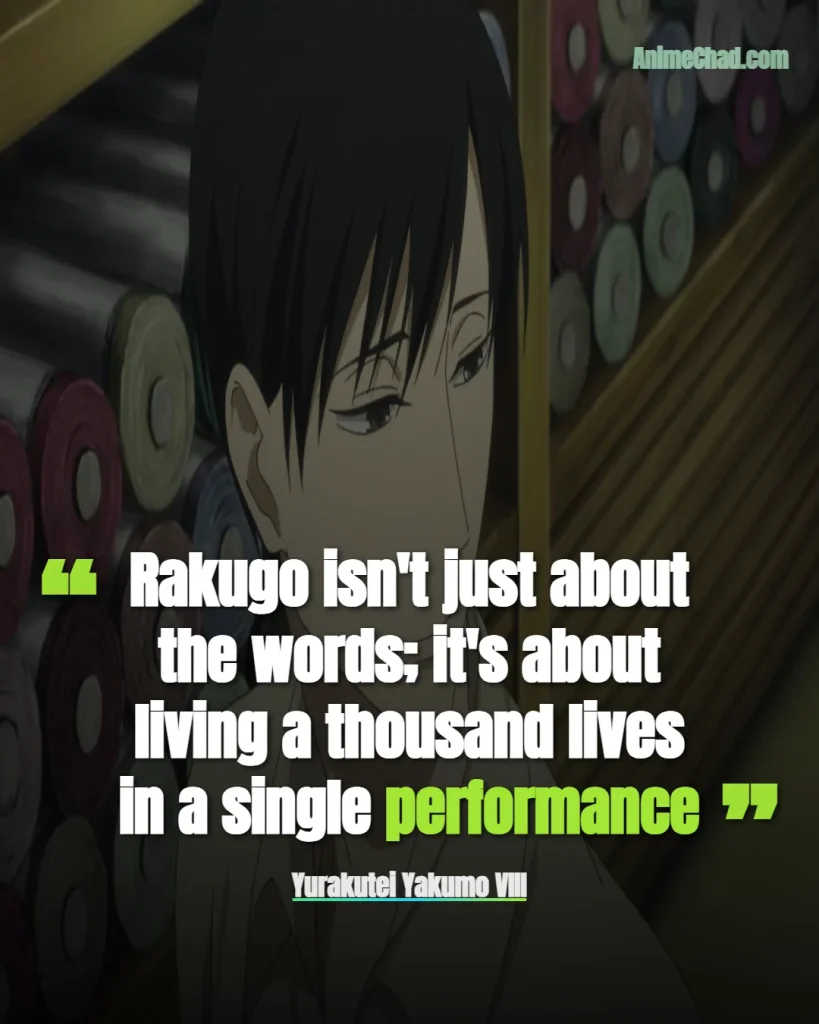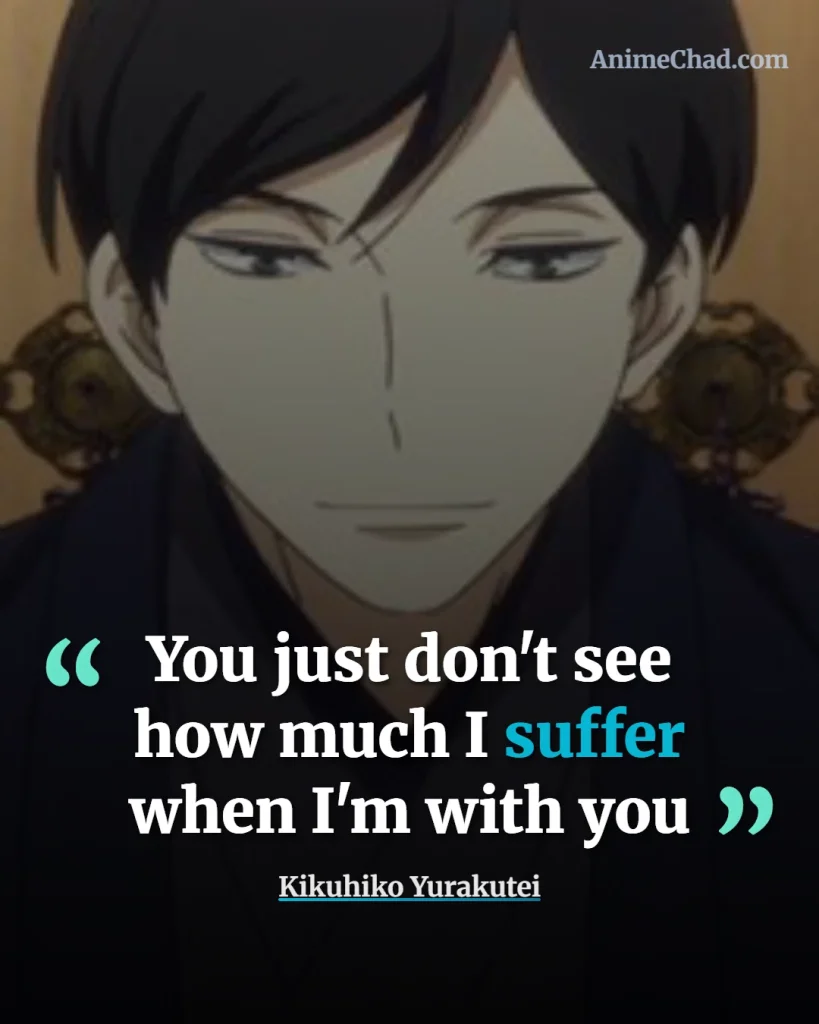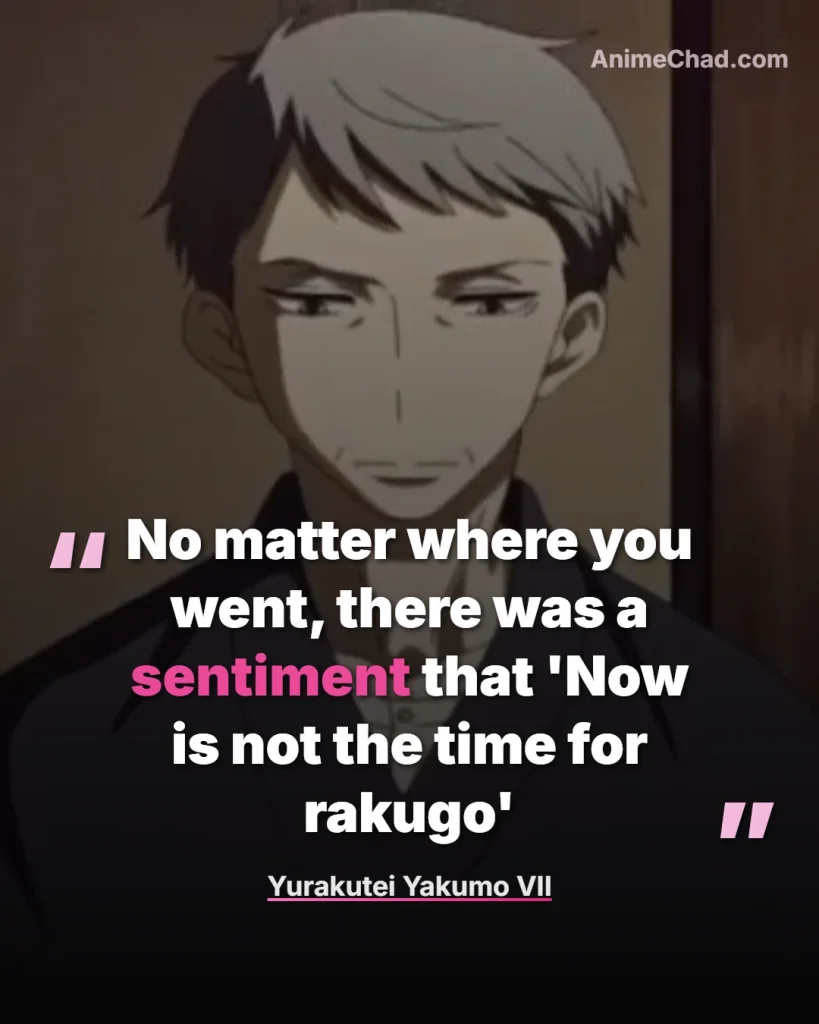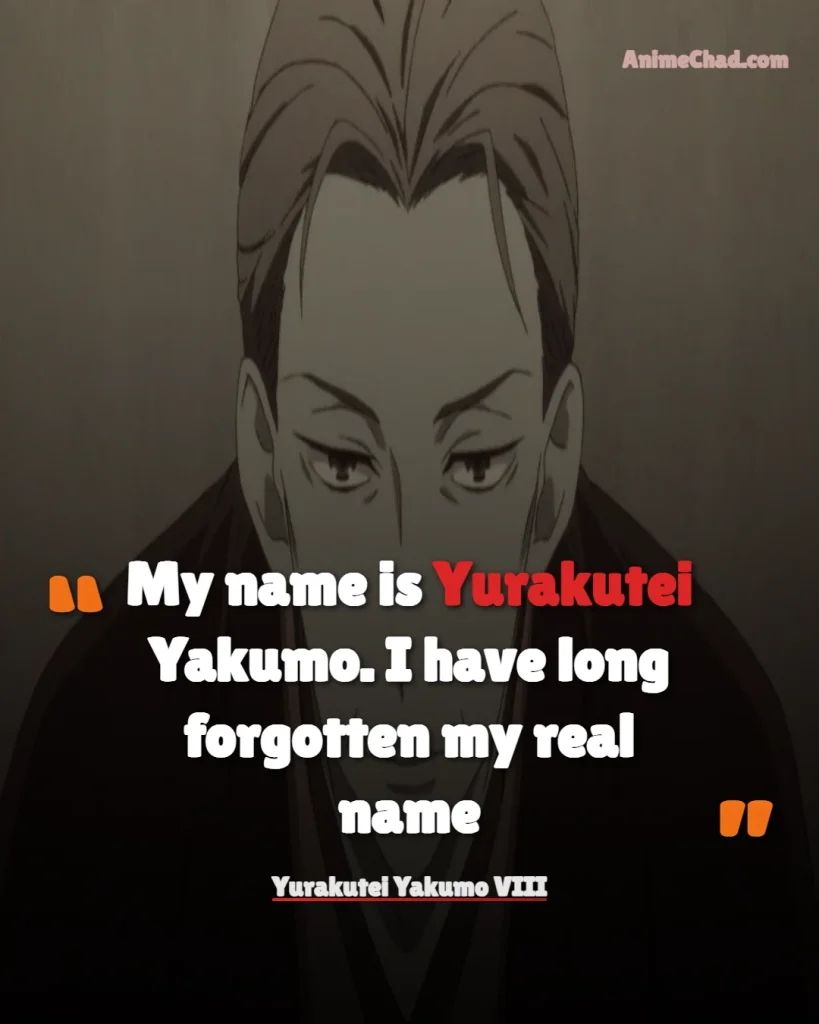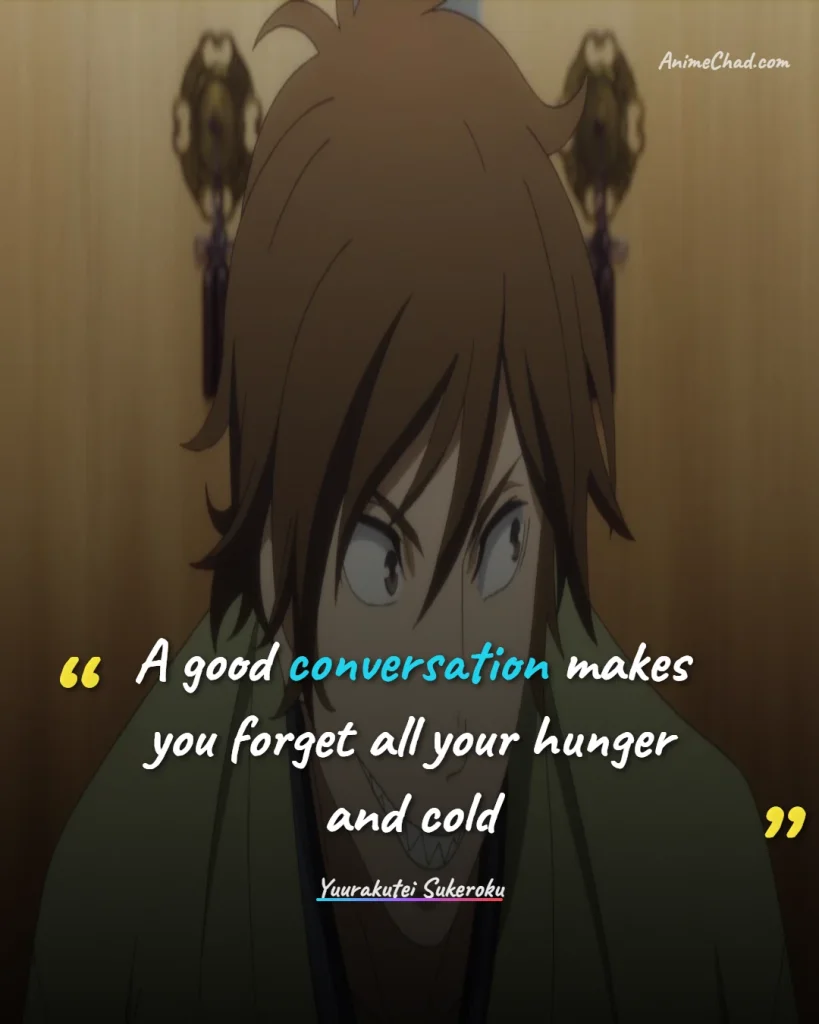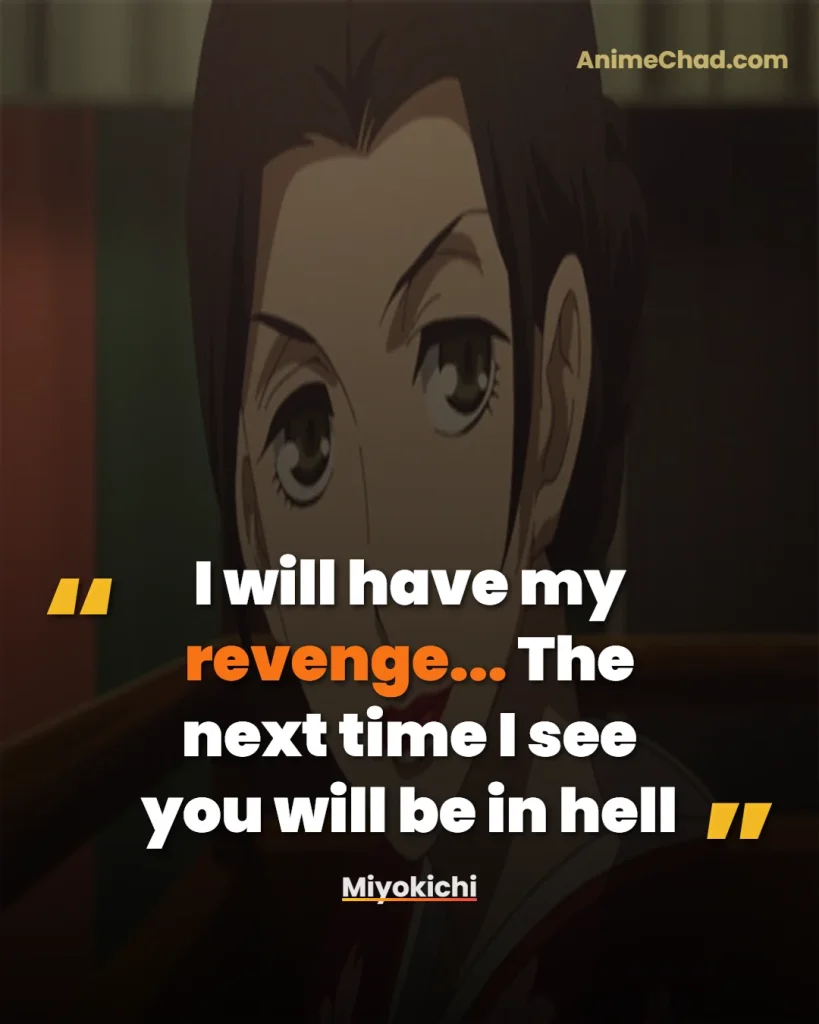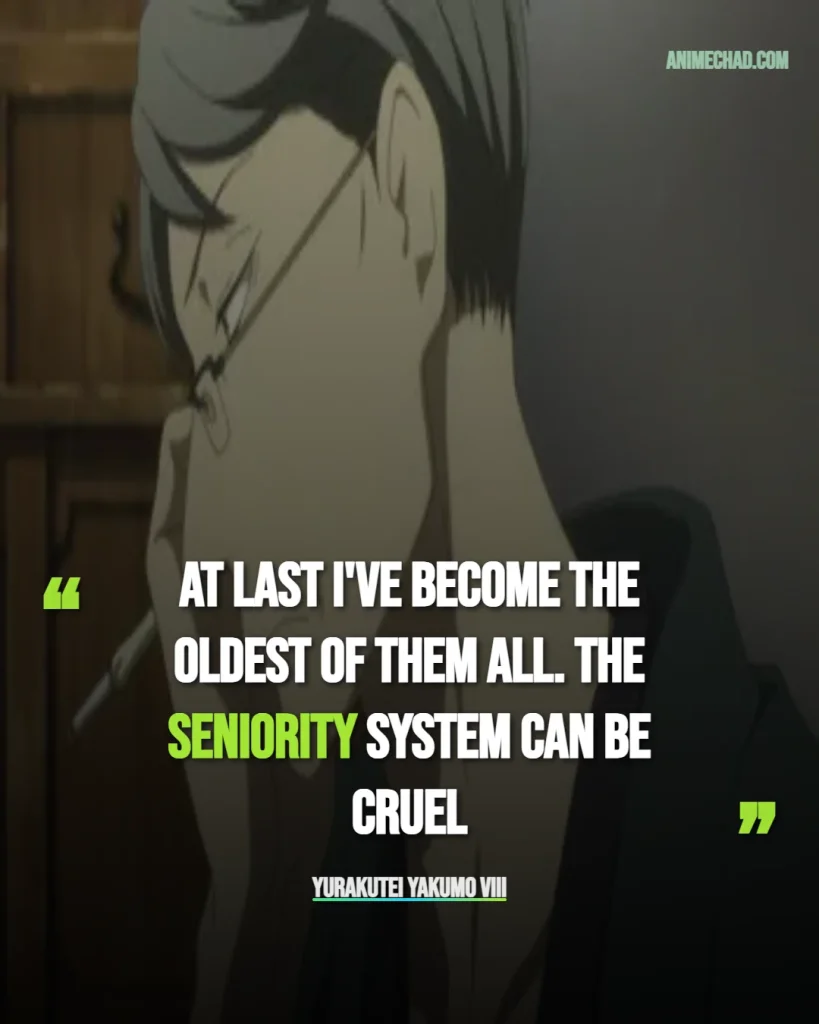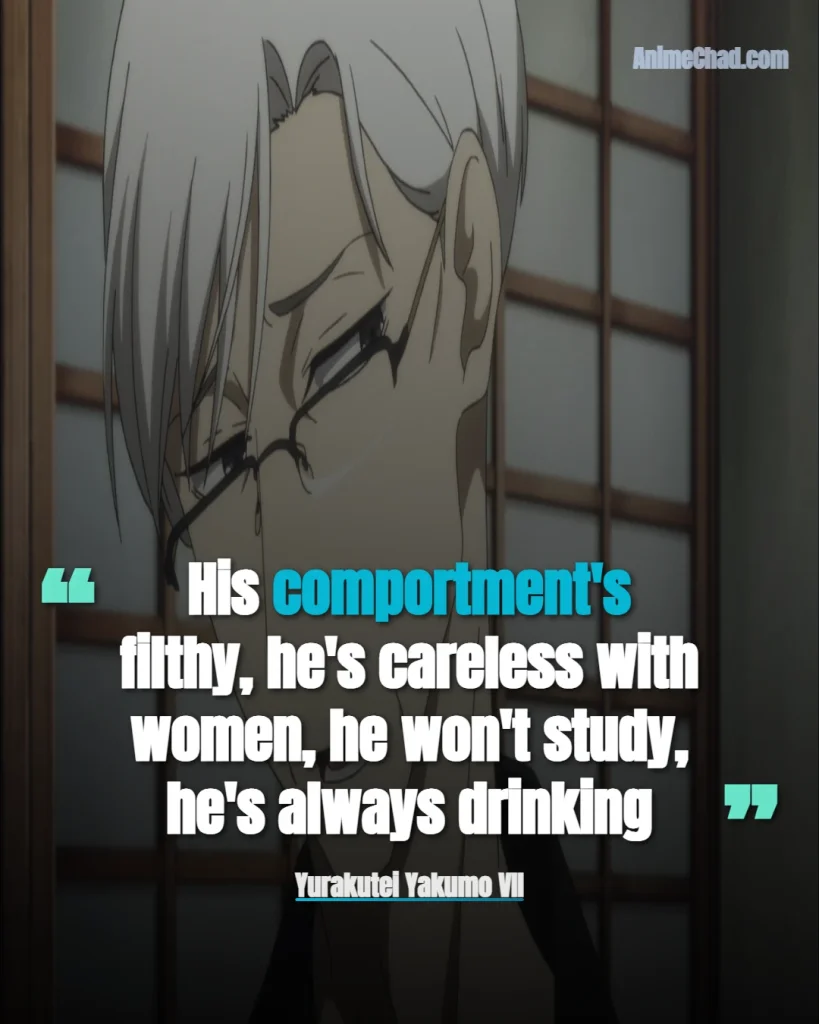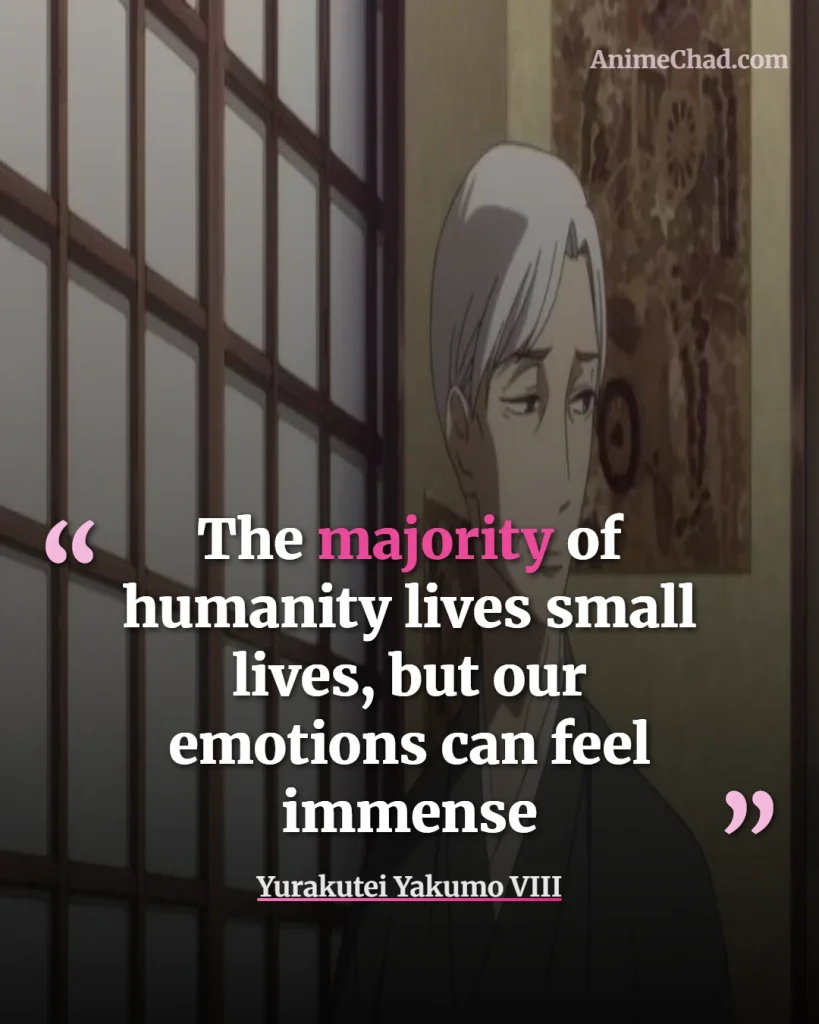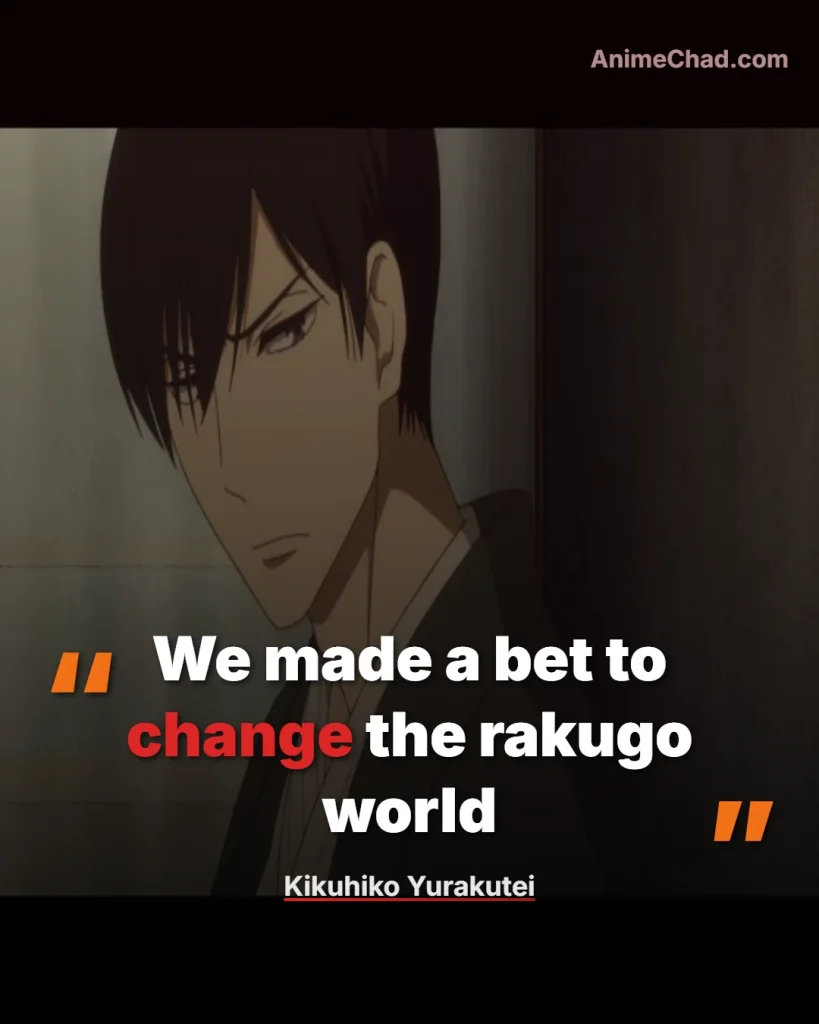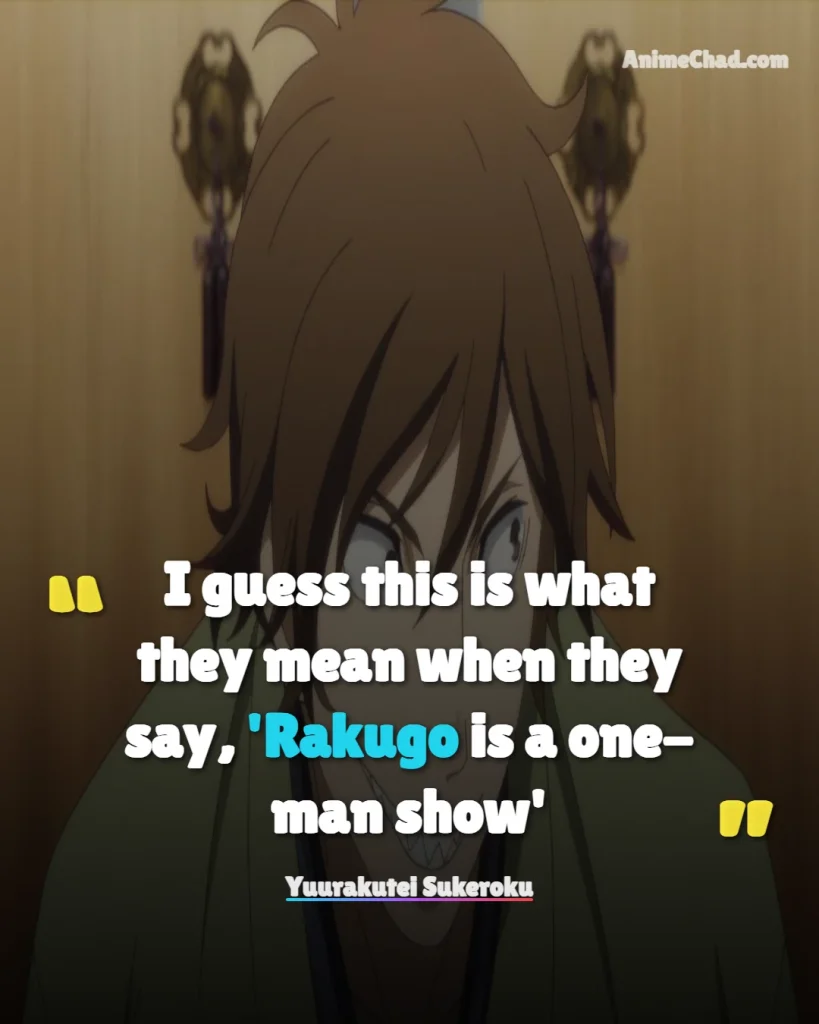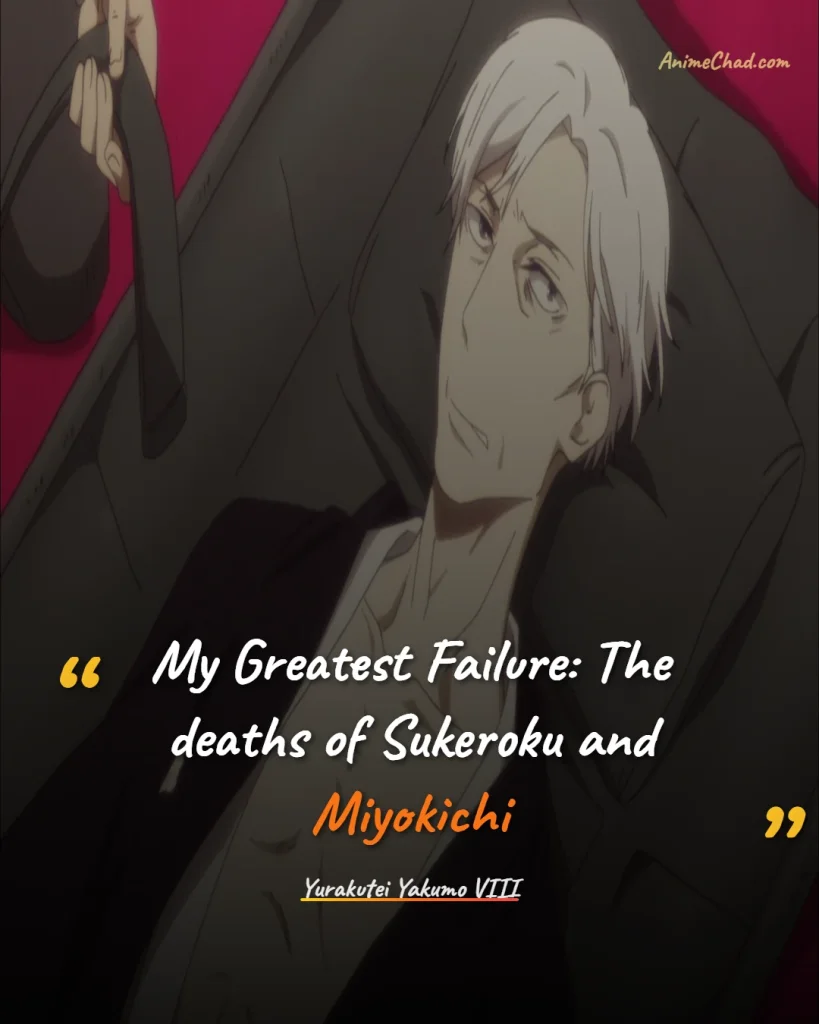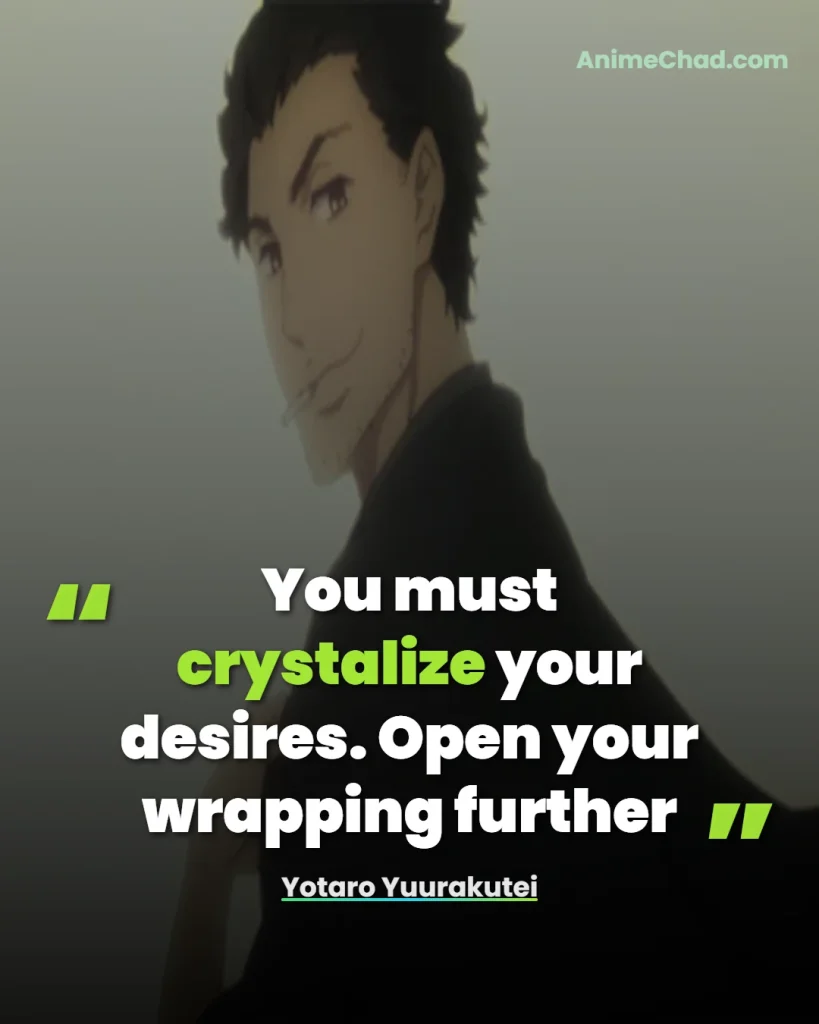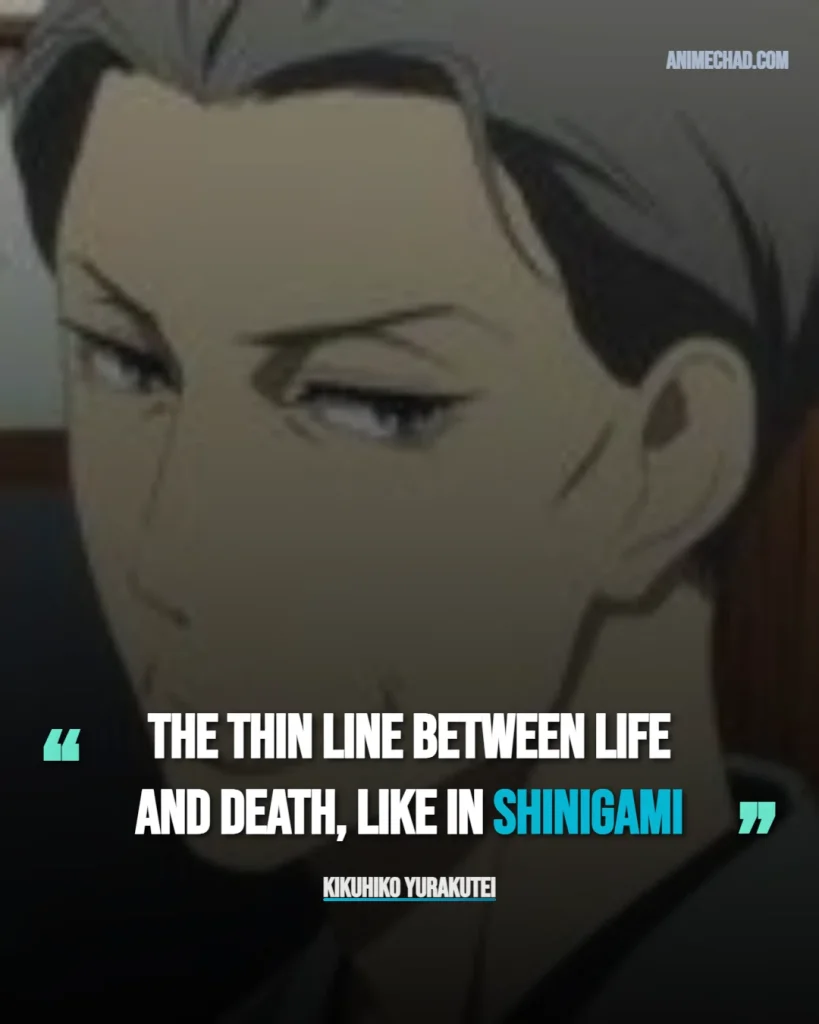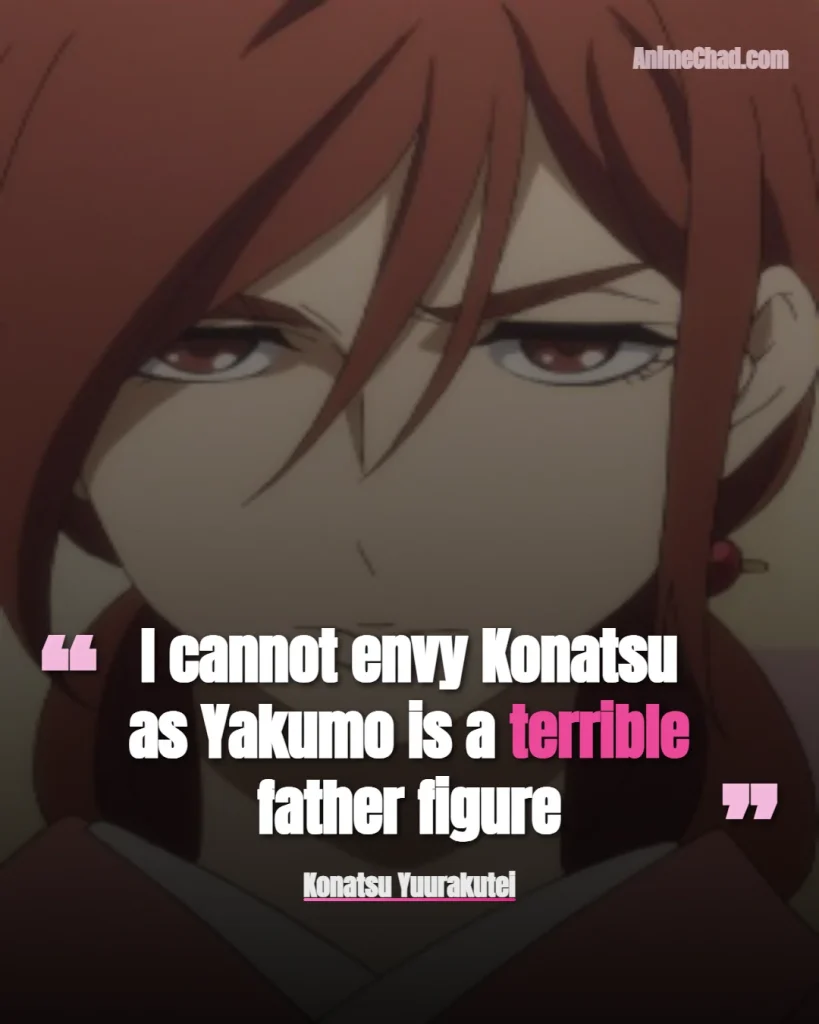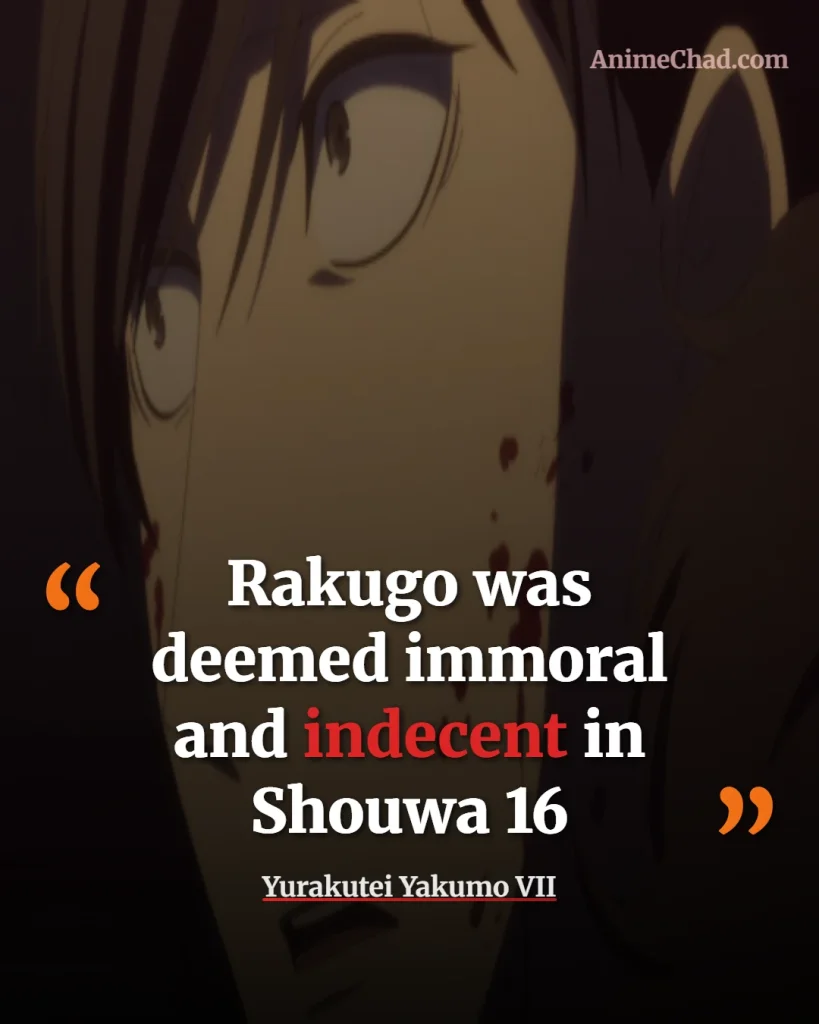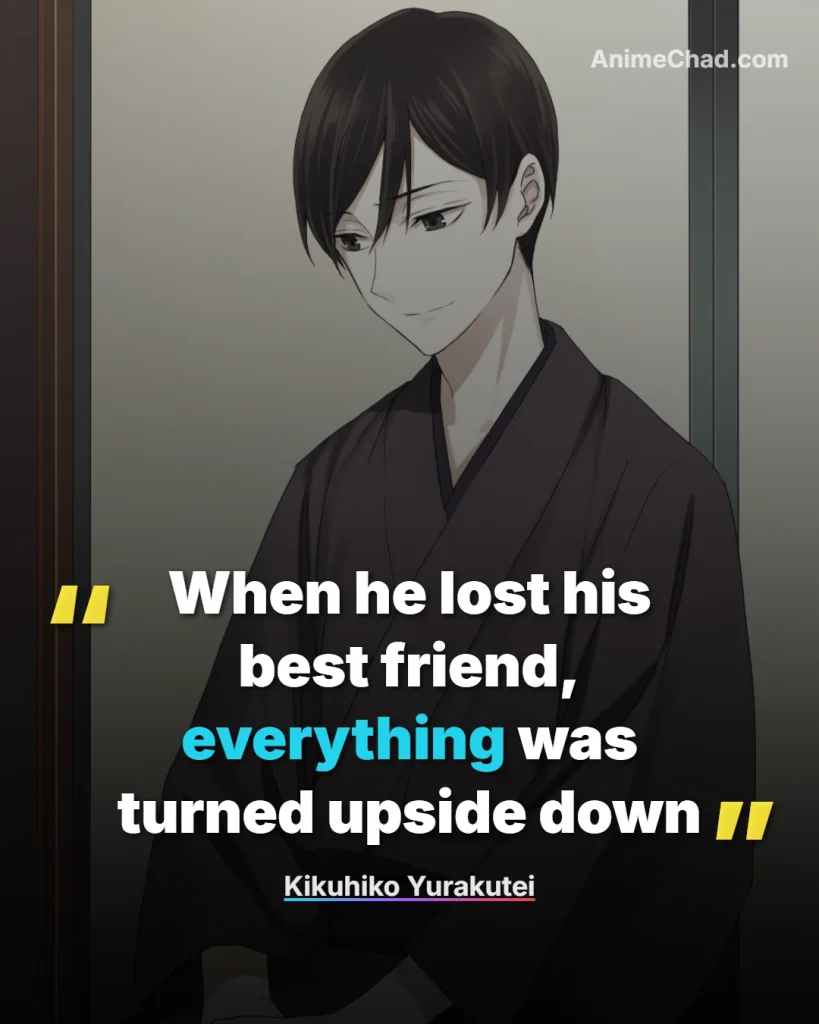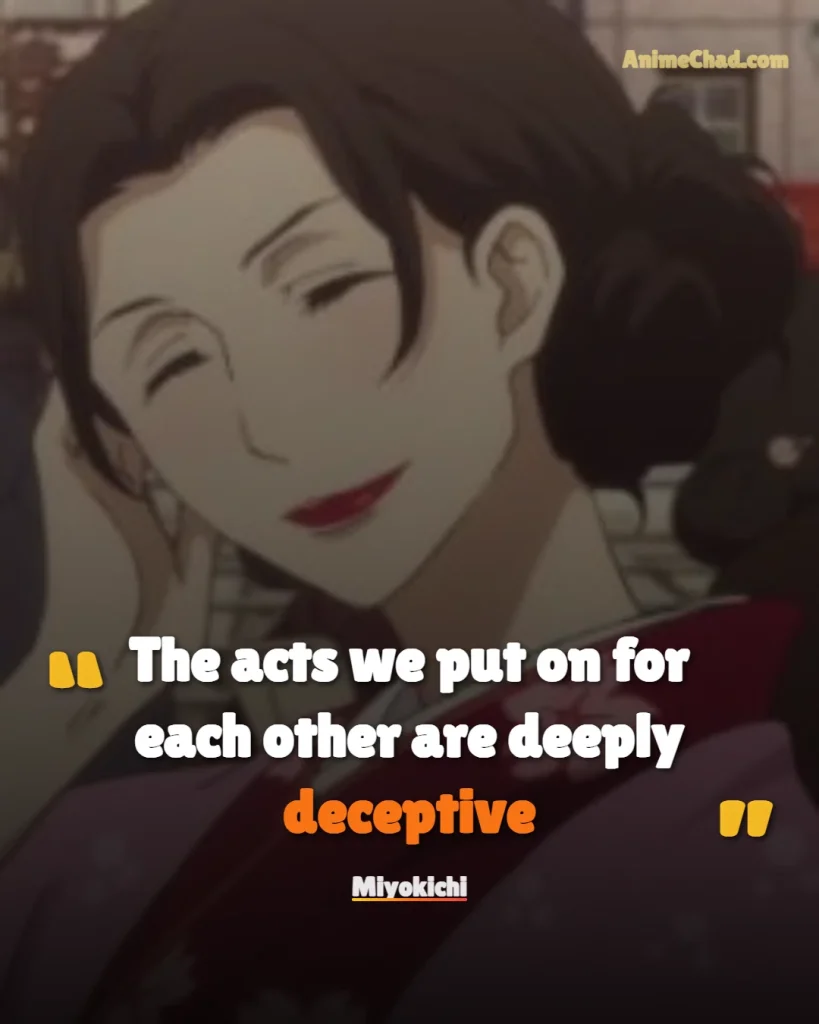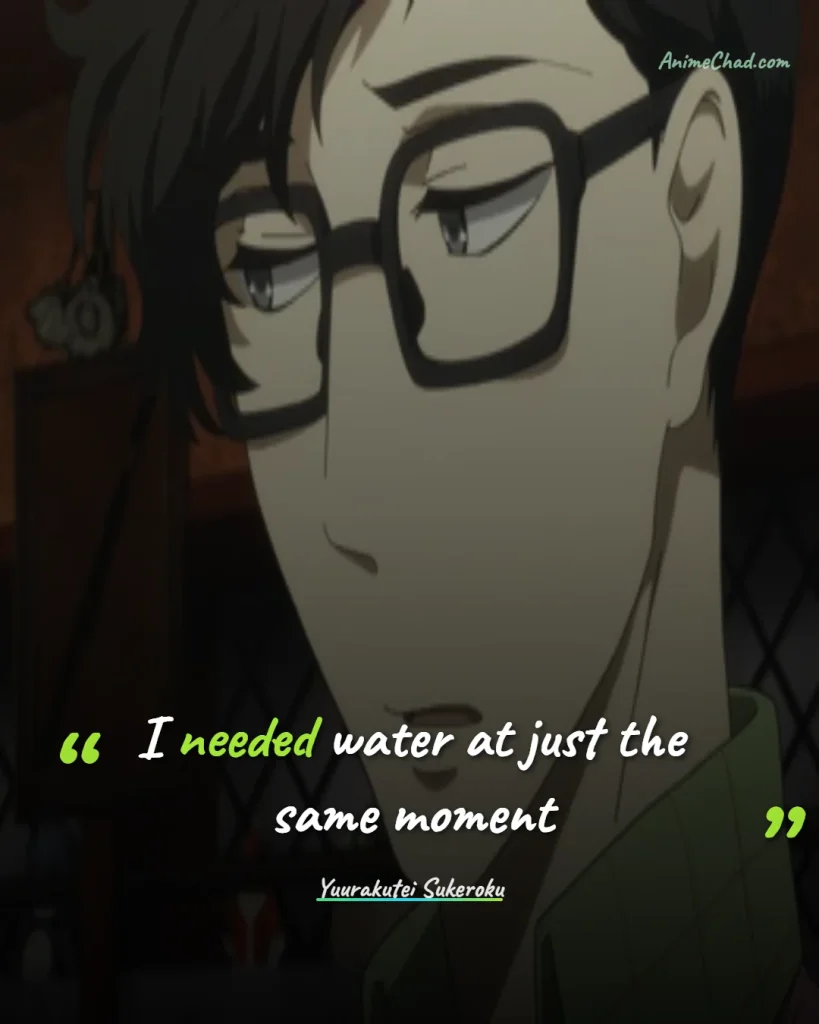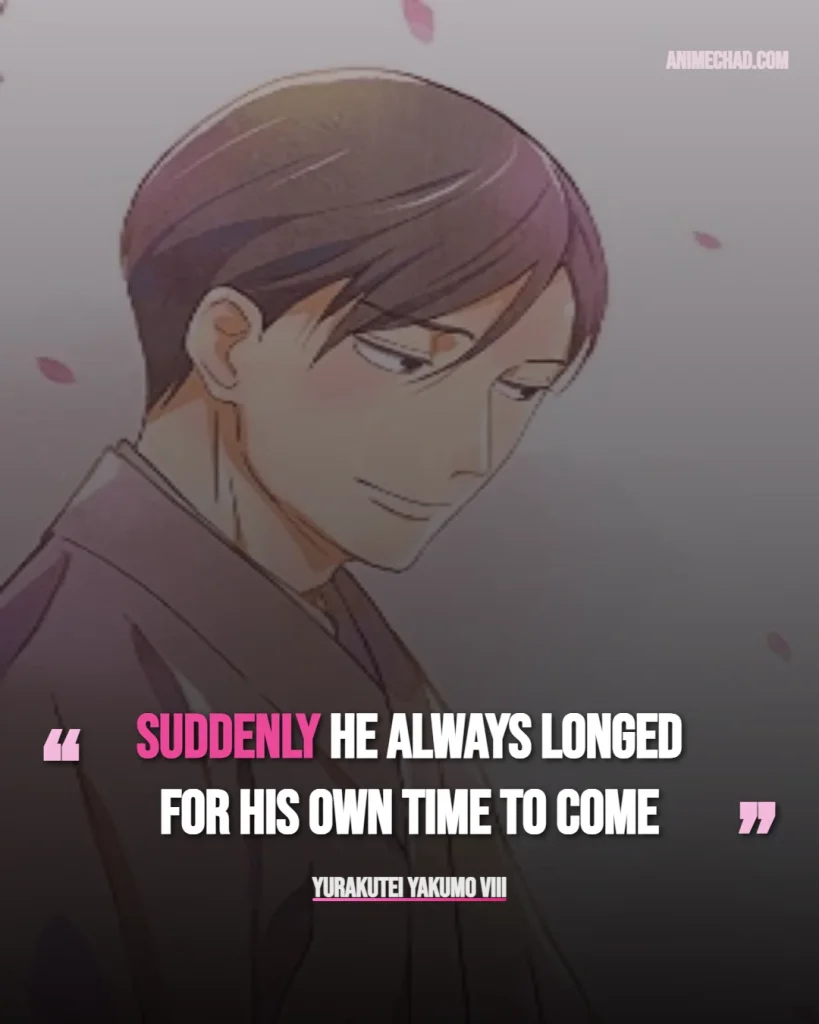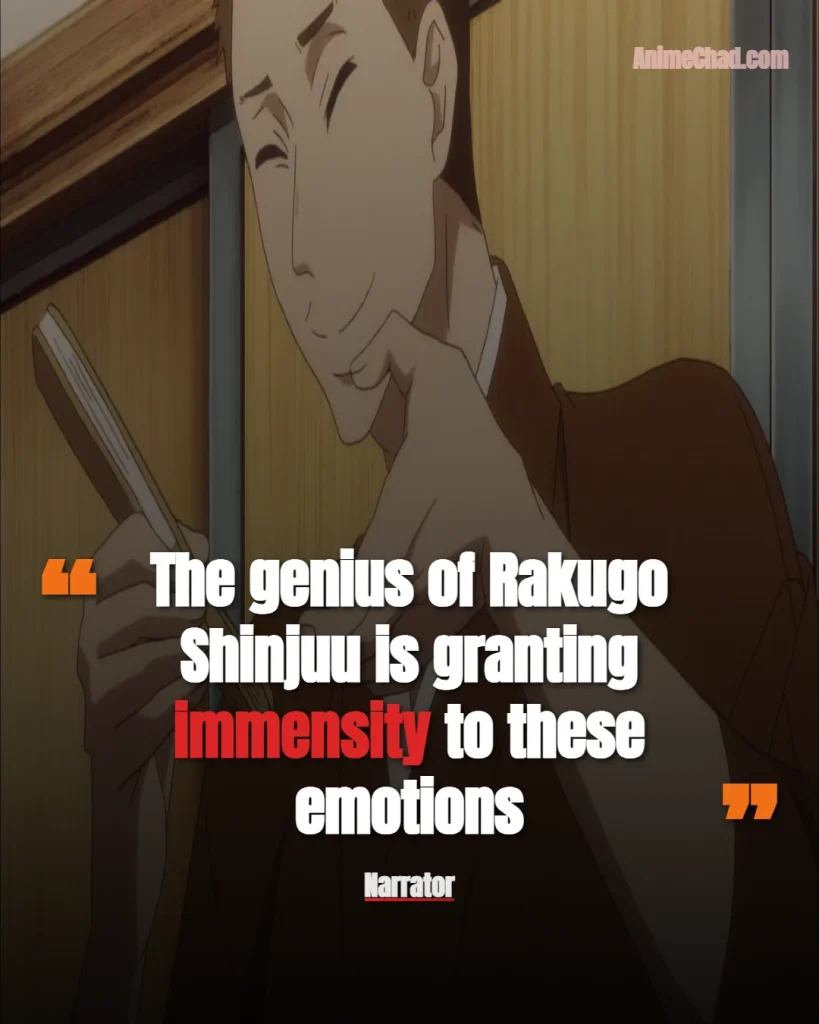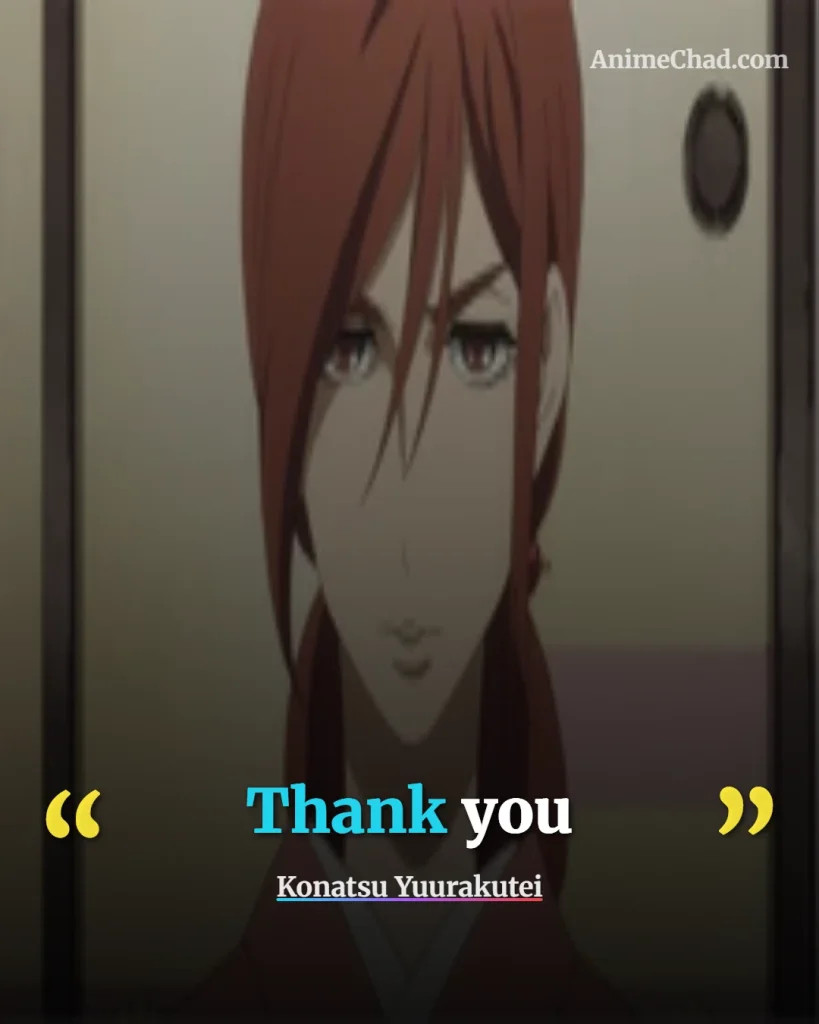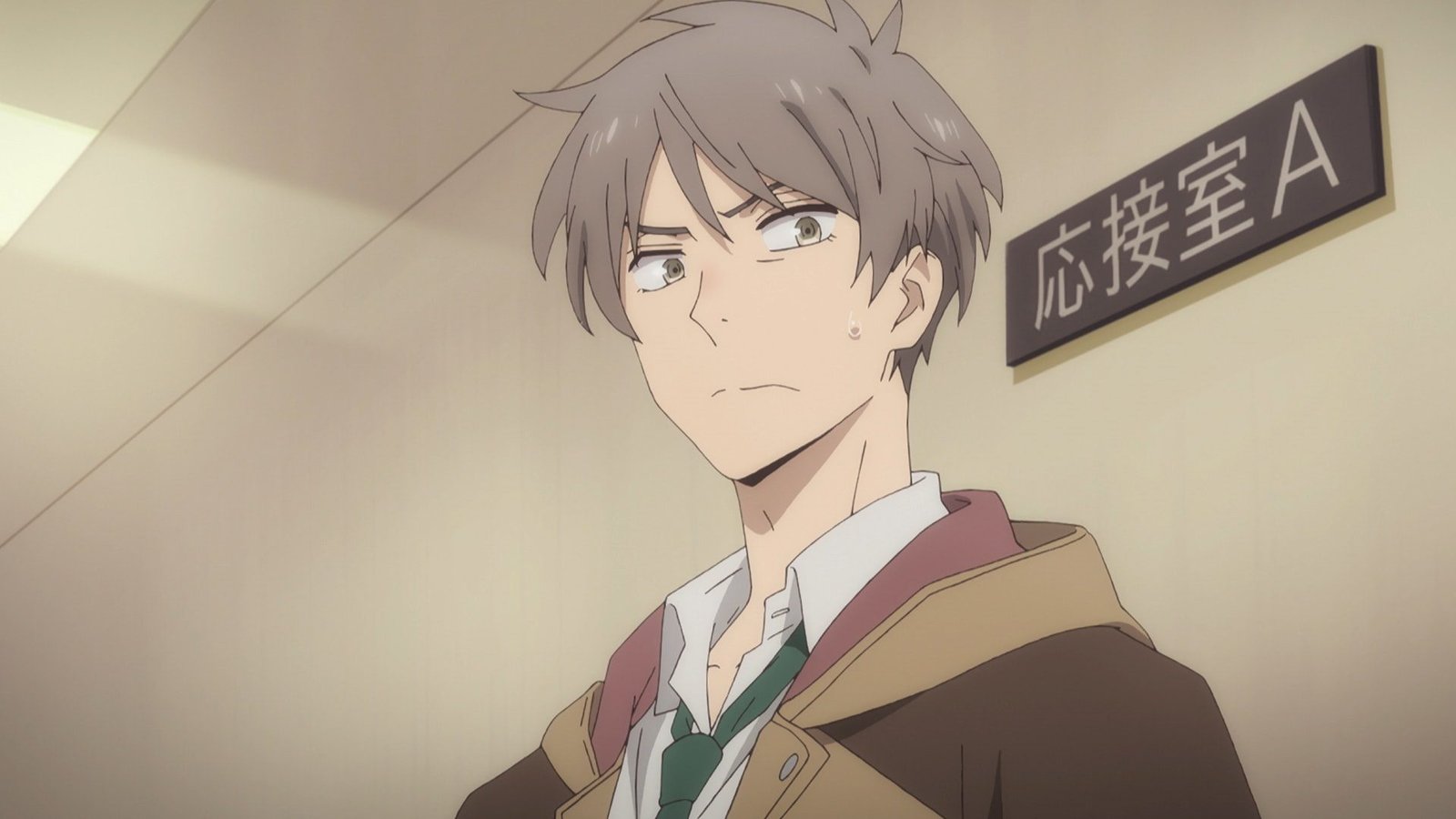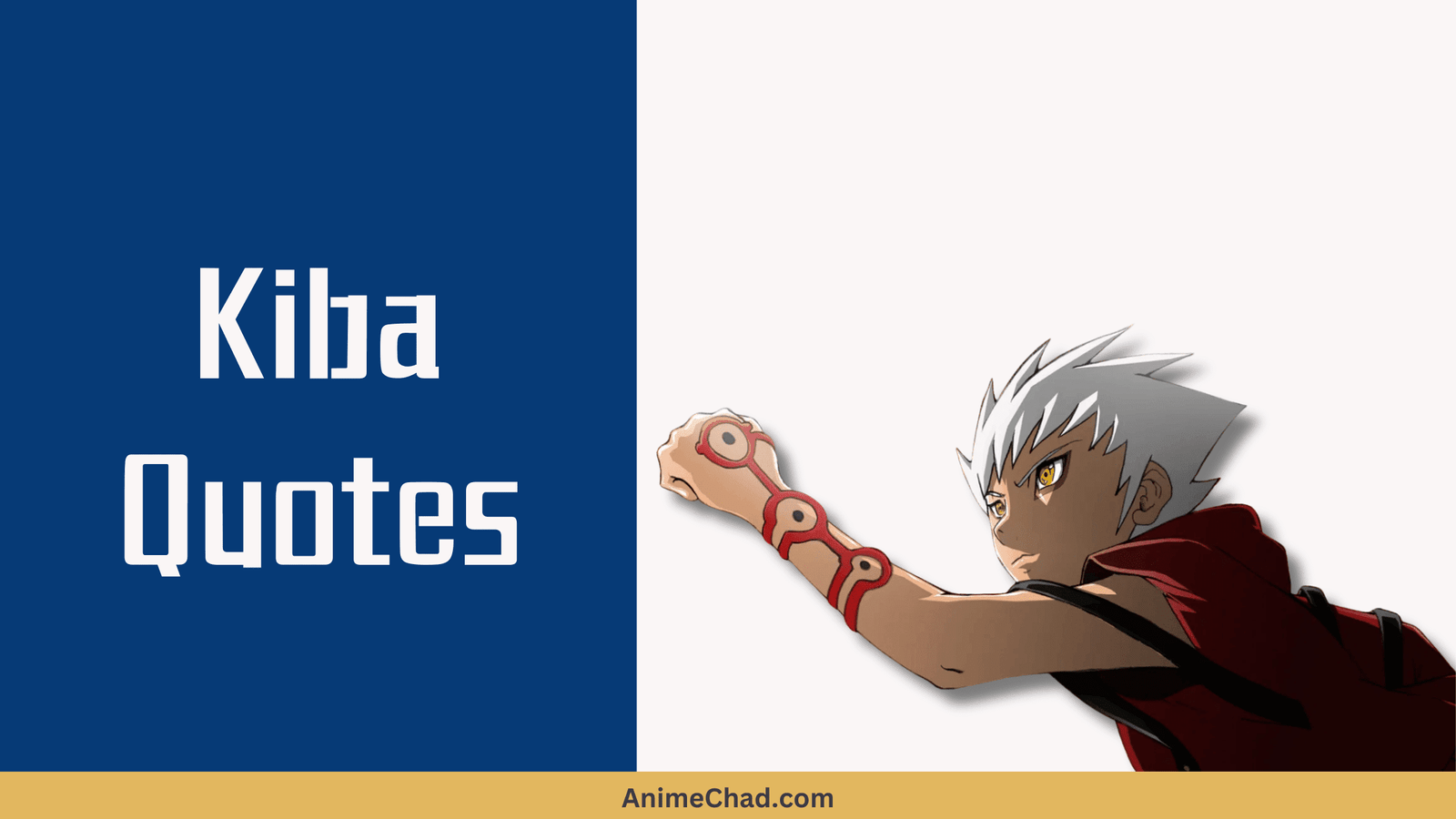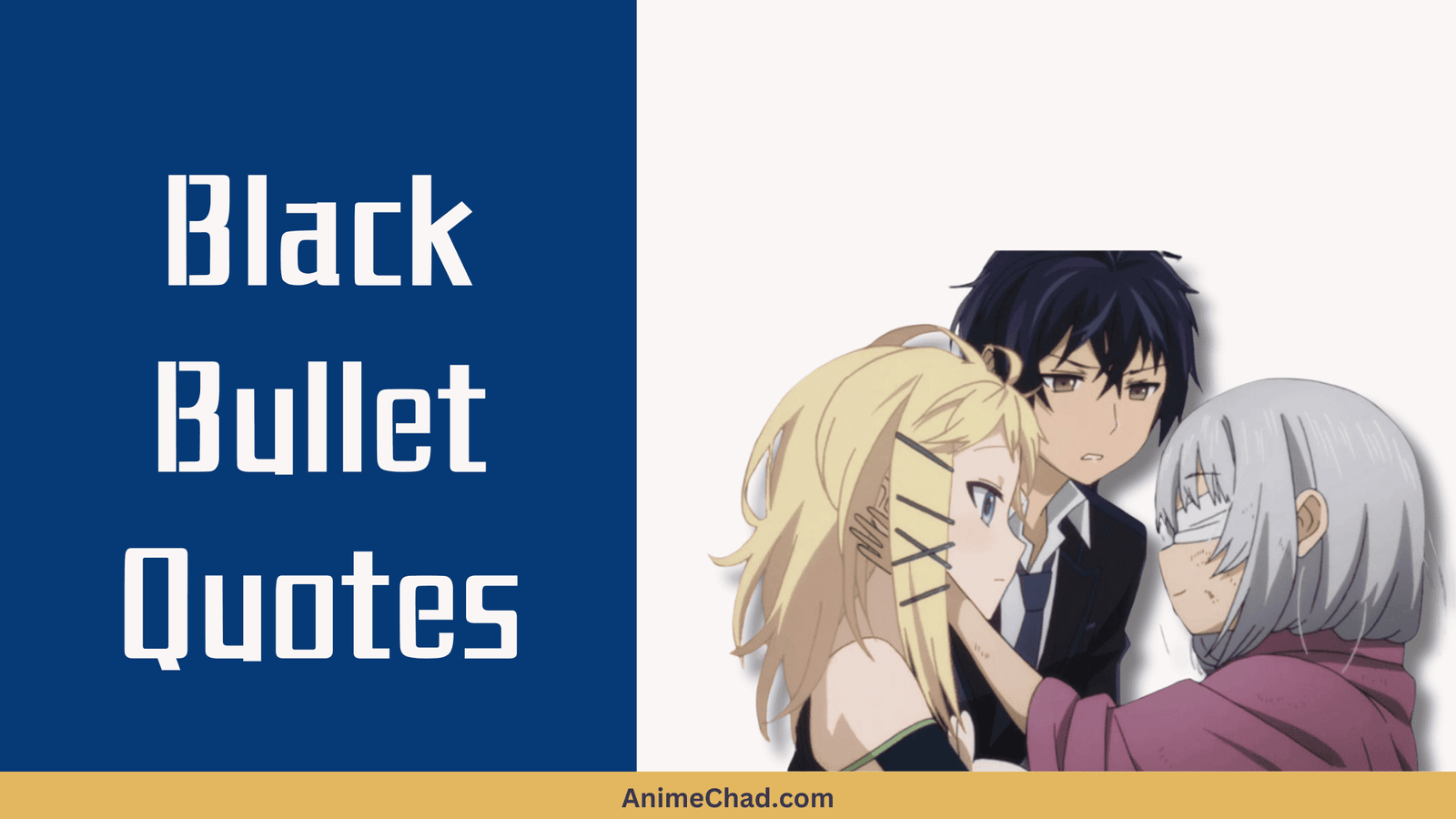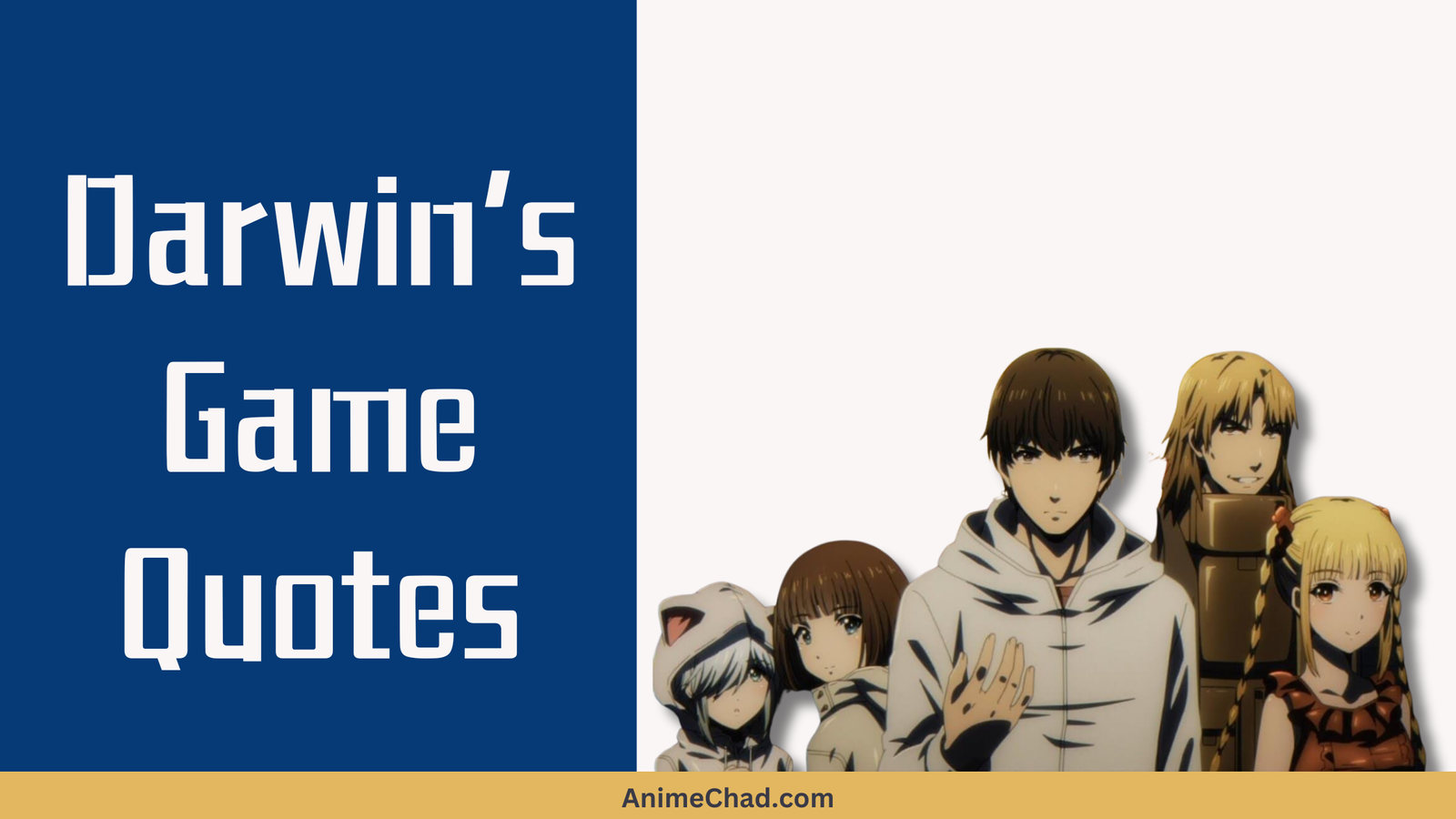Shouwa Genroku Rakugo Shinjuu chronicles the lives of rakugo storytellers across generations, centering on masters like Yurakutei Yakumo and his apprentices Bon and Sukeroku, who navigate the traditional art form amid Japan’s shifting eras. Key themes include legacy, the clash between tradition and modernity, the redemptive power of performance, and the burdens of personal regret.
This curated collection of 25 quotes highlights pivotal moments of emotional depth, character evolution, and thematic resonance from the anime’s core arcs.
The stage is an act, but even an act can be real
Episode 1 (The Silverfish)
Yurakutei Yakumo VIII
Yakumo’s reflective monologue blurs performance and reality, underscoring his internal conflict over lost identity and the sustaining illusion of rakugo.
I have long forgotten my real name
Episode 13 (The Final Curtain)
Yurakutei Yakumo VIII
In a haunting admission during his decline, Yakumo reveals the cost of his legacy, marking profound character erosion and the theme of self-sacrifice.
Rakugo isn’t just about the words; it’s about living a thousand lives in a single performance
Episode 9 (A Girl’s Pride)
Yurakutei Yakumo VIII
Yakumo imparts wisdom to Yotaro, emphasizing rakugo’s immersive empathy, fostering his apprentice’s growth amid generational tensions.
You just don’t see how much I suffer when I’m with you
Episode 8 (The Act of Revenge)
Kikuhiko Yurakutei
Kikuhiko’s raw confession to Sukeroku exposes their fractured bond, highlighting rivalry’s emotional toll and themes of unspoken love.
No matter where you went, there was a sentiment that ‘Now is not the time for rakugo’
Episode 2 (The Successor)
Yurakutei Yakumo VII
The master’s reminiscence on wartime suppression captures rakugo’s vulnerability to societal upheaval, connecting to endurance of cultural heritage.
My name is Yurakutei Yakumo. I have long forgotten my real name
Episode 13 (The Final Curtain)
Yurakutei Yakumo VIII
Echoing his identity crisis in a performance, Yakumo confronts mortality, symbolizing the series’ exploration of inherited burdens.
A good conversation makes you forget all your hunger and cold
Episode 5 (The Ghost of Sukeroku)
Yuurakutei Sukeroku
Sukeroku’s warm insight during a shared meal with Kikuhiko reveals his carefree spirit, deepening their friendship against isolation.
I will have my revenge… The next time I see you will be in hell
Episode 9 (A Girl’s Pride)
Miyokichi
Miyokichi’s vengeful outburst amid betrayal shatters illusions, amplifying themes of regret and the destructive force of unrequited passion.
At last I’ve become the oldest of them all. The seniority system can be cruel
Episode 13 (The Final Curtain)
Yurakutei Yakumo VIII
Yakumo’s wry reflection on aging in rakugo society underscores isolation, driving his arc toward reluctant mentorship.
His comportment’s filthy, he’s careless with women, he won’t study, he’s always drinking
Episode 3 (The Bell Ringer)
Yurakutei Yakumo VII
The master’s stern critique of young Sukeroku highlights discipline’s role, foreshadowing Sukeroku’s rebellious path to innovation.
The majority of humanity lives small lives, but our emotions can feel immense
Episode 9 (A Girl’s Pride)
Yurakutei Yakumo VIII (narrated reflection)
Yakumo’s philosophical musing on personal turmoil validates inner worlds, tying to rakugo’s cathartic storytelling power.
We made a bet to change the rakugo world
Episode 7 (The Man Who Dreams of Yuurakutei)
Kikuhiko Yurakutei
Recalling his pact with Sukeroku, Kikuhiko confronts lost ambition, marking growth from youthful idealism to haunted maturity.
I guess this is what they mean when they say, ‘Rakugo is a one-man show’
Episode 4 (The Zenegami)
Yuurakutei Sukeroku
Sukeroku’s lighthearted yet profound stage remark emphasizes solitude in performance, reflecting themes of individual legacy.
My Greatest Failure: The deaths of Sukeroku and Miyokichi
Episode 13 (The Final Curtain)
Yurakutei Yakumo VIII (internal)
Yakumo’s silent guilt over the double suicide haunts his twilight years, embodying regret’s enduring shadow on tradition.
You must crystalize your desires. Open your wrapping further
Episode 10 (The Price of Dreams)
Yotaro Yuurakutei
Yotaro’s motivational push to Konatsu urges self-revelation, advancing her arc from resentment to artistic pursuit.
The thin line between life and death, like in Shinigami
Episode 12 (The Last Storyteller)
Kikuhiko Yurakutei
Invoking his signature tale, Kikuhiko grapples with mortality post-loss, linking personal tragedy to rakugo’s existential depth.
I cannot envy Konatsu as Yakumo is a terrible father figure
Episode 13 (The Final Curtain)
Konatsu Yuurakutei (reflected dialogue)
Konatsu’s unresolved blame toward Yakumo exposes familial rifts, highlighting themes of inherited emotional scars.
Rakugo was deemed immoral and indecent in Shouwa 16
Episode 2 (The Successor)
Yurakutei Yakumo VII
The master’s historical account illustrates art’s fragility in crisis, reinforcing perseverance against cultural erasure.
When he lost his best friend, everything was turned upside down
Episode 7 (The Man Who Dreams of Yuurakutei)
Kikuhiko Yurakutei
Kikuhiko’s grief over Sukeroku drives self-destruction, pivotal for his evolution into Yakumo VIII.
The acts we put on for each other are deeply deceptive
Episode 9 (A Girl’s Pride)
Miyokichi
Miyokichi’s accusation dismantles Kikuhiko’s facade, revealing vulnerability and the theme of authenticity in relationships.
I needed water at just the same moment
Episode 6 (The First Street
Yuurakutei Sukeroku
Sukeroku’s empathetic jest during tension lightens a heavy rivalry moment, showcasing camaraderie’s healing role.
You really do have a head for business
Episode 11 (The Man in the Moon)
Yotaro Yuurakutei
Yotaro’s banter with Matsuda reflects his optimistic reinvention, contrasting Yakumo’s cynicism and bridging old-new worlds.
Suddenly he always longed for his own time to come
Episode 12 (The Last Storyteller)
Yurakutei Yakumo VIII
Yakumo’s suicidal ideation post-Sukeroku’s death intensifies his arc, exploring despair within rakugo’s redemptive framework.
The genius of Rakugo Shinjuu is granting immensity to these emotions
Episode 10 (The Price of Dreams)
Narrator (thematic reflection)
This underscores the series’ emotional scale in quiet moments, connecting personal stories to broader human experience.
Thank you
Episode 1 (Season 2: Sukeroku Futatabi-hen)
Konatsu Yuurakutei
Konatsu’s simple gratitude to Yotaro breaks her emotional walls, symbolizing reconciliation and the passage of legacy.

